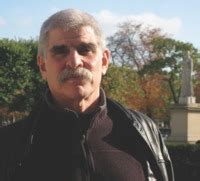A Quote by Francis Levy
I am not for any form of repression, but I sometimes think the desire for liberation masks the desire for oblivion. It's very hard to tell the difference sometimes.
Quote Topics
Related Quotes
To be an actor is to be ambiguous in every form, which is a very hard way to live. You represent desire: the desire of the director and the desire of the audience, even if it's a subconscious desire. If a director is to work with you for two months, he must be in love with you in some way or another.
I'm going to work with Dan Clowes. After Charlie Kaufman, it's hard to fill up the gap. It's hard to find somebody who... A lot of writers, I can clearly see the desire of succeeding before the desire of expressing themselves. Sometimes people get upset when you want to be different. You were talking about "whimsical," which is a nice word. But sometimes they use the word "quirky" in the pejorative sense. I get frustrated, because they feel like I'm doing whatever I want, and there is no ground, and I don't really care. They feel it's cynical. But I don't think I have any cynicism in me.
[T]hus one should not think that desire is repressed, for the simple reason that the law is what constitutes both desire and the lack on which it is predicated. Where there is desire, the power relation is already present: an illusion, then, to denounce this relation for a repression exerted after the event.
I think words are the thing that either triumphs for you, in your desire to communicate something, or fails. I love language because when it succeeds, for me, it doesn't just tell me something. It enacts something. It creates something. And it goes both ways. Sometimes it's violent. Sometimes it hurts you. And sometimes it saves you.
The word desire suggests that there is something we do not have. If we have everything already, then there can be no desire, for there is nothing left to want. I think that what the Buddha may have been trying to tell us is that we have it all, each of us, all the time; therefore, desire is simply unnecessary.
It's not necessary for you to exacerbate your contrast with struggle in order to get it into a higher place. It is not necessary to suffer in order to give birth to desire. But when you have suffered and you have given birth to desire, so what? You've got a desire. Turn your attention to the desire. Think about where you're going and never mind where you've been. Don't spend any more time justifying any of that stuff -- Abraham
People get sick and sometimes they get better and sometimes they don't. And it doesn't matter if the sickness is cancer or if it's depression. Sometimes the drugs work and sometimes they don't. Sometimes the drugs work for a while and then they stop. Sometimes the alternative stuff works and sometimes it doesn't. And sometimes you wonder if no outside interference makes any difference at all; if an illness is like a storm, if it simply has to run its course and, at the end of it, depending on how robust you are, you will be alive. Or you will be dead.


































